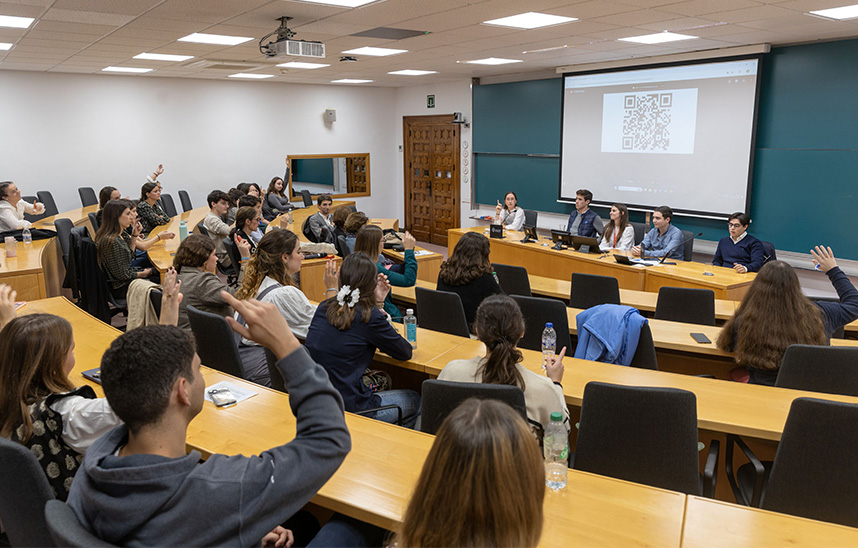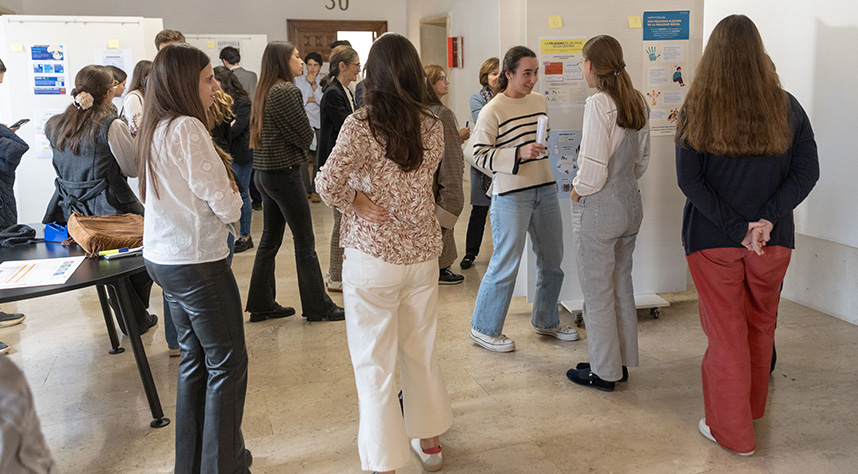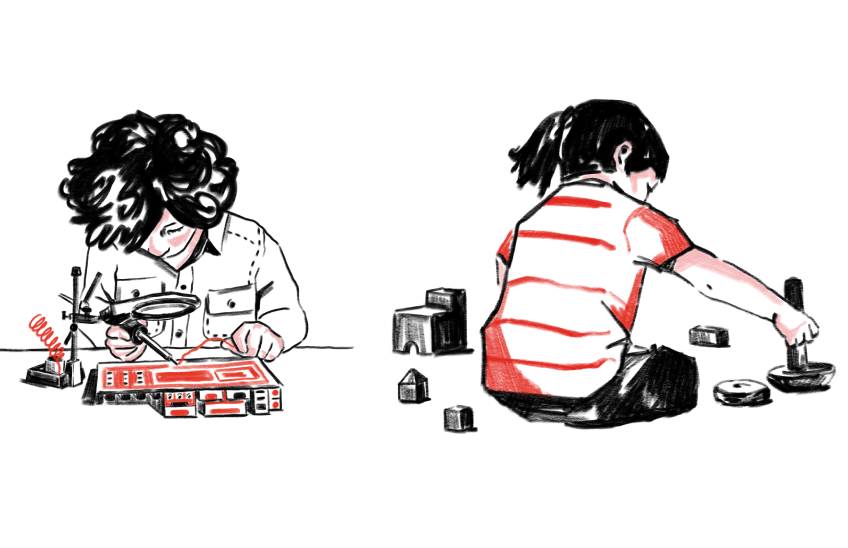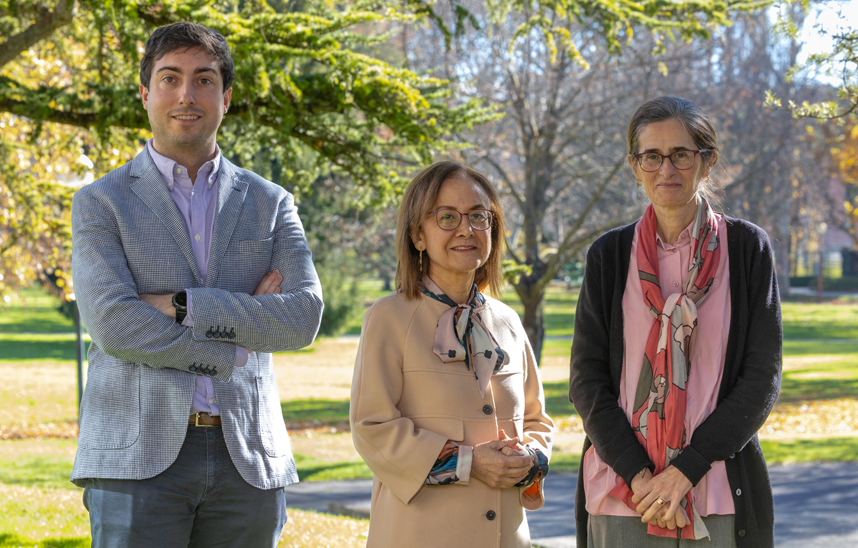Students from Education and Psychology of the University participate in a workshop on Happycracy, the obligation to be happy.
The meeting is part of an innovation project professor of Professor Dolores Conesa, researcher at School of Education and Psychology.

Last November, students from Education and Psychology carried out a dynamic that had as goal to reflect on the existing pressure in society to be happy, which increases as a result of the content we consume on social networks. This dynamic is part of the innovation project professor Educational psychologization: effects of positive psychology in the family and school Education , led by the researcher and professor of School of Education and Psychology of the University, Dolores Conesa.
The germ of this project, relates the professor, was the existing concern shared by some teachers about the current loss of reflection in society, due to constant connectivity in the digital world and the internship of multitasking; and an individual search for happiness. "There is almost a moral obligation to be happy. This pressure comes at a very high cost: substituting our growth and maturity staff for individual well-being." And he adds: "There are authors who speak of the pandemic of narcissism, which makes us blind to the common good, which is that which is good for everyone, including oneself".
The project included working with students on the book Happycracy. How Science and the Happiness Industry Control Our Lives, by authors Edgar Cabanas and Eva Illouz. "I felt it was critical for students to think about the 'it's all good' or 'the management of emotions' that is so fashionable. This positive psychology leads us to an ethical blindness that needs to be reflected upon," continues the researcher from the University of Navarra.

A dynamic for the reflection of future psychologists and educators.
"By working with this book, we wanted the students to analyze and reflect on the consequences of the positive psychologization of life in the world educational and to connect what they read and saw in class with their own experience staff", continues Dolores Conesa. After this analysis, the students were divided into groups and a dynamic was organized by which some of them made and presented their reflections in poster format to the rest of their classmates; and others of them, were organized in round tables, analyzing some aspect pointed out in Happycrazia . It was very interesting because none of discussion paper was repeated and what surprised us teachers the most was the way in which the students connected what we had seen in class with their real experience", explains the teacher.
The workshop was also open to students from other Degrees and courses at the University of Navarra, which enriched the reflections and dialogue following the presentations. "The experience was very interesting and positive, and there were students who, afterwards, commented that they had never stopped to think about some aspects of their lives that connect with the content we dealt with in the subject", collects Dolores Conesa.
One of the first year Psychology students who participated in project relates his experience: "The activity was intellectually motivating, because the exhibition of people from different courses was very enriching. In addition, it was not just a masterful class , but interactions and debates were born that really aroused the interest of those who listened. It was very entertaining and I am proud to have participated, besides having overcome the discomfort of exhibition in public".


